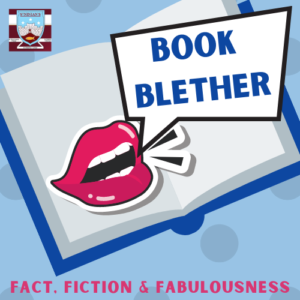How to: Podcast
Category: Blog, Branches and Groups, SLG Scotland
Welcome to the latest in our How To series, where CILIPS SLG highlights useful digital tools to our members. Please email us at SLGScotland@gmail.com or tweet @SLGScotland for any additional support, or to suggest a tool for us to feature.
What are podcasts?
Podcasts are a way to connect listeners with stories that interest them. Each podcast is centred around a topic, with new audio episodes made available for download on a regular basis. Like lots of stories, they can be fiction or non-fiction, and there are lots of different podcasts out there. You can find them on lots of different platforms – like Spotify, Apple Podcasts or Castbox – and most are usually free to download.
How are they useful?
Podcasts connect listeners with the stories that interest them. As librarians, connecting people with stories is literally in our job description, so podcasts are a perfect fit for us! Although they are digital, they are unusual as a digital tool because the focus is not visual but auditory – which can cut down on screen time.
You can curate lists of educational podcasts and share them with departments in school (using a tool like Padlet, for example) – or you can create your own school podcast.
A school podcast has many benefits. It’s a great reason to join forces with departments across the school, and it boosts a sense of community.
Here’s how Pamela McLean (Librarian at St Ninian’s High School, Kirkintilloch) created a reading podcast with the English Department:
School librarian Lucas Maxwell is the expert on starting a school podcast – we couldn’t have done it without him generously sharing his journey in the book Podcasting with Youth. Based on his advice, we chose Anchor as our platform, and used the free audio editing software Audacity to record and edit our episodes.
We decided on a monthly format, with three segments in each episode:
- Book Banter: featuring our book of the month.
- Staff Star Reader: a member of staff talks about the books which have shaped them.
- Reviews and Interviews: pupil recommendations and author interviews.
We involved pupils every step of the way, asking them to think up names and possible logos for our podcast. We got lots of great entries but settled on Book Blether: Fact, Fiction and Fabulousness. We then used Canva to turn our winning logo design into an image that we uploaded to Anchor for use on every episode.
We were lucky enough to receive Creative Workshops funding from the Scottish Book Trust, which allowed us to fund an author visit and podcast equipment, but you don’t need these things to start your own podcast: a smartphone with the Anchor app on it is enough.
Recording the podcast is very quick, and we chose to keep the editing to a minimum. Audacity looks complicated but for simple editing you can learn the basics quickly using YouTube tutorials. We remove ‘ums’ and ‘ems’, and then order the segments accompanied by instrumental music with a Creative Commons licence.
To help us during a busy school year, we planned our episodes in advance. This meant theming them around events we’ll be marking in school, and choosing our staff star readers well in advance. Our pupils’ recommendations are recorded at book clubs and we got parental permission to use these audio clips at the start of the school year.
Once an episode is published on Anchor, Anchor does the work of registering it on lots of different podcast platforms so that people can find it. You can also share the link on your school library social media, and promote it in school so teachers can use it in class. To help with this, we created a poster with a QR code on Canva: these are up in classrooms and can be easily scanned to play the podcast right away.
Good to Know
Starting your own podcast is a great way of connecting to your wider school community. Staff will learn more about current books for children and young people, and pupils will hear staff from different departments (not just English) talking about books and reading and stories. It’s a great resource to point parents towards too.
It’s also a lot of fun! We’ve recorded three episodes so far, and it’s become easier each time. Choose what works for you – content you love, pupil involvement, short episodes – so that it can help you achieve the aims that your library and school have planned for the year.
Happy podcasting!
